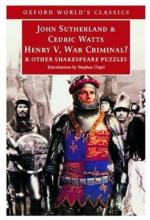|
This section contains 6,508 words (approx. 22 pages at 300 words per page) |

|
SOURCE: “Falstaff and the Art of Dying,” in Studies in English Literature, 1500-1900, Vol. 27, No. 2, Spring, 1987, pp. 197-211.
In the essay below, Cubeta evaluates the secondhand account of Falstaff's death in Henry V (II.iii) with particular reference to fifteenth- and sixteenth-century religious writings on how one should prepare for final judgment. Noting that Falstaff has always been more interested in the art of living than the art of dying, Cubeta relates the spiritual ambiguity of the fat knight's death to the moral ambiguity of his life.
Once the historical myths and dramatic concerns of The Henriad served by Falstaff's comic vision have been resolved by his legendary repudiation, Falstaff the character can no longer exist: “Reply not to me with a foolborn jest” (Shakespeare, 2H4 V.v.55).1 On that command to silence, the newly crowned king has destroyed his fool and jester. Falstaff could undergo a mock-magical...
|
This section contains 6,508 words (approx. 22 pages at 300 words per page) |

|


